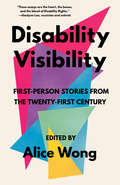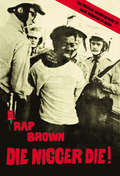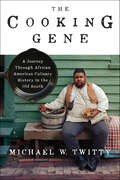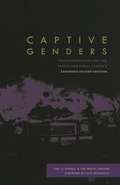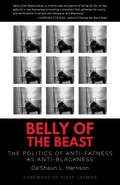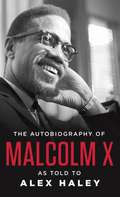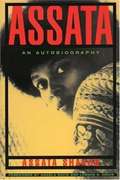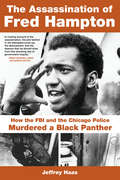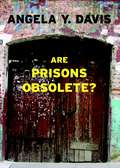Special Collections
Noname's Book Club
Description: Chicago rapper Noname has launched her own book club! Noname's selections will highlight progressive work from writers of Color and writers within the LGBTQ community. #bookclub
- Table View
- List View
Disability Visibility
by Alice Wong&“Disability rights activist Alice Wong brings tough conversations to the forefront of society with this anthology. It sheds light on the experience of life as an individual with disabilities, as told by none other than authors with these life experiences. It's an eye-opening collection that readers will revisit time and time again.&” —Chicago TribuneOne in five people in the United States lives with a disability. Some disabilities are visible, others less apparent—but all are underrepresented in media and popular culture. Activist Alice Wong brings together this urgent, galvanizing collection of contemporary essays by disabled people, just in time for the thirtieth anniversary of the Americans with Disabilities Act,From Harriet McBryde Johnson&’s account of her debate with Peter Singer over her own personhood to original pieces by authors like Keah Brown and Haben Girma; from blog posts, manifestos, and eulogies to Congressional testimonies, and beyond: this anthology gives a glimpse into the rich complexity of the disabled experience, highlighting the passions, talents, and everyday lives of this community. It invites readers to question their own understandings. It celebrates and documents disability culture in the now. It looks to the future and the past with hope and love.
Die Nigger Die!
by H. Rap BrownMore than any other black leader, H. Rap Brown, chairman of the radical Black Power organization Student Nonviolent Coordinating Committee (SNCC), came to symbolize the ideology of black revolution. This autobiography--which was first published in 1969, went through seven printings and has long been unavailable--chronicles the making of a revolutionary. It is much more than a personal history, however; it is a call to arms, an urgent message to the black community to be the vanguard force in the struggle of oppressed people. Forthright, sardonic, and shocking, this book is not only illuminating and dynamic but also a vitally important document that is essential to understanding the upheavals of the late 1960s. University of Massachusetts professor Ekwueme Michael Thelwell has updated this edition, covering Brown's decades of harassment by law enforcement agencies, his extraordinary transformation into an important Muslim leader, and his sensational trial.
The Cooking Gene
by Michael W. Twitty2018 James Beard Foundation Book of the Year | 2018 James Beard Foundation Book Award Winner inWriting | Nominee for the 2018 Hurston/Wright Legacy Award in Nonfiction | #75 on The Root100 2018A renowned culinary historian offers a fresh perspective on our most divisive cultural issue, race, in this illuminating memoir of Southern cuisine and food culture that traces his ancestry—both black and white—through food, from Africa to America and slavery to freedom.Southern food is integral to the American culinary tradition, yet the question of who "owns" it is one of the most provocative touch points in our ongoing struggles over race. In this unique memoir, culinary historian Michael W. Twitty takes readers to the white-hot center of this fight, tracing the roots of his own family and the charged politics surrounding the origins of soul food, barbecue, and all Southern cuisine. From the tobacco and rice farms of colonial times to plantation kitchens and backbreaking cotton fields, Twitty tells his family story through the foods that enabled his ancestors’ survival across three centuries. He sifts through stories, recipes, genetic tests, and historical documents, and travels from Civil War battlefields in Virginia to synagogues in Alabama to Black-owned organic farms in Georgia. As he takes us through his ancestral culinary history, Twitty suggests that healing may come from embracing the discomfort of the Southern past. Along the way, he reveals a truth that is more than skin deep—the power that food has to bring the kin of the enslaved and their former slaveholders to the table, where they can discover the real America together.Illustrations by Stephen Crotts
Captive Genders
by Eric A. Stanley and Nat SmithThe intersection of transgender, gender variant, and queer identity with the crushing force of the Prison Industrial Complex.
Belly of the Beast
by Da'Shaun L. HarrisonExploring the intersections of Blackness, gender, fatness, health, and the violence of policing.To live in a body both fat and Black is to exist at the margins of a society that creates the conditions for anti-fatness as anti-Blackness. Hyper-policed by state and society, passed over for housing and jobs, and derided and misdiagnosed by medical professionals, fat Black people in the United States are subject to sociopolitically sanctioned discrimination, abuse, condescension, and trauma. Da&’Shaun Harrison--a fat, Black, disabled, and nonbinary trans writer--offers an incisive, fresh, and precise exploration of anti-fatness as anti-Blackness, foregrounding the state-sanctioned murders of fat Black men and trans and nonbinary masculine people in historical analysis. Policing, disenfranchisement, and invisibilizing of fat Black men and trans and nonbinary masculine people are pervasive, insidious ways that anti-fat anti-Blackness shows up in everyday life. Fat people can be legally fired in 49 states for being fat; they&’re more likely to be houseless. Fat people die at higher rates from misdiagnosis or nontreatment; fat women are more likely to be sexually assaulted. And at the intersections of fatness, Blackness, disability, and gender, these abuses are exacerbated. Taking on desirability politics, the limitations of gender, the connection between anti-fatness and carcerality, and the incongruity of &“health&” and &“healthiness&” for the Black fat, Harrison viscerally and vividly illustrates the myriad harms of anti-fat anti-Blackness. They offer strategies for dismantling denial, unlearning the cultural programming that tells us &“fat is bad,&” and destroying the world as we know it, so the Black fat can inhabit a place not built on their subjugation.
The Autobiography of Malcolm X
by Malcom X and Alex HaleyMemoir of Malcolm X , the dynamic American black militant, religious leader and activist who articulated the anger, the struggle, and the beliefs of African Americans in the 1960s.
Assata
by Assata Shakur and Angela Y. Davis and Lennox S. HindsOn May 2, 1973, Black Panther Assata Shakur (aka JoAnne Chesimard) lay in a hospital, close to death, handcuffed to her bed, while local, state, and federal police attempted to question her about the shootout on the New Jersey Turnpike that had claimed the life of a white state trooper. Long a target of J. Edgar Hoover's campaign to defame, infiltrate, and criminalize Black nationalist organizations and their leaders, Shakur was incarcerated for four years prior to her conviction on flimsy evidence in 1977 as an accomplice to murder. This intensely personal and political autobiography belies the fearsome image of JoAnne Chesimard long projected by the media and the state. With wit and candor, Assata Shakur recounts the experiences that led her to a life of activism and portrays the strengths, weaknesses, and eventual demise of Black and White revolutionary groups at the hand of government officials. The result is a signal contribution to the literature about growing up Black in America that has already taken its place alongside The Autobiography of Malcolm X and the works of Maya Angelou. Two years after her conviction, Assata Shakur escaped from prison. She was given political asylum by Cuba, where she now resides.
The Assassination of Fred Hampton
by Jeffrey HaasUncovering a cold-blooded execution at the hands of a conspiring police force, this engaging account relentlessly pursues the murderers of Black Panther Fred Hampton. Documenting the entire 14-year process of bringing the killers to justice, this chronicle also depicts the 18-month court trial in detail. Revealing Hampton himself in a new light, this examination presents him as a dynamic community leader whose dedication to his people and to the truth inspired the young lawyers of the People's Law Office, solidifying their lifelong commitment to fighting corruption. Contending with FBI stonewalling and unlimited government resources bent on hiding a darker plot, this reconstruction relates an inspiring narrative of upholding morality in one man's memory.
Are Prisons Obsolete?
by Angela Y. DavisWith her characteristic brilliance, grace and radical audacity, Angela Y. Davis has put the case for the latest abolition movement in American life: the abolition of the prison. As she quite correctly notes, American life is replete with abolition movements, and when they were engaged in these struggles, their chances of success seemed almost unthinkable. For generations of Americans, the abolition of slavery was sheerest illusion. Similarly,the entrenched system of racial segregation seemed to last forever, and generations lived in the midst of the practice, with few predicting its passage from custom. The brutal, exploitative (dare one say lucrative?) convict-lease system that succeeded formal slavery reaped millions to southern jurisdictions (and untold miseries for tens of thousands of men, and women). Few predicted its passing from the American penal landscape. Davis expertly argues how social movements transformed these social, political and cultural institutions, and made such practices untenable.In Are Prisons Obsolete?, Professor Davis seeks to illustrate that the time for the prison is approaching an end. She argues forthrightly for "decarceration", and argues for the transformation of the society as a whole.
